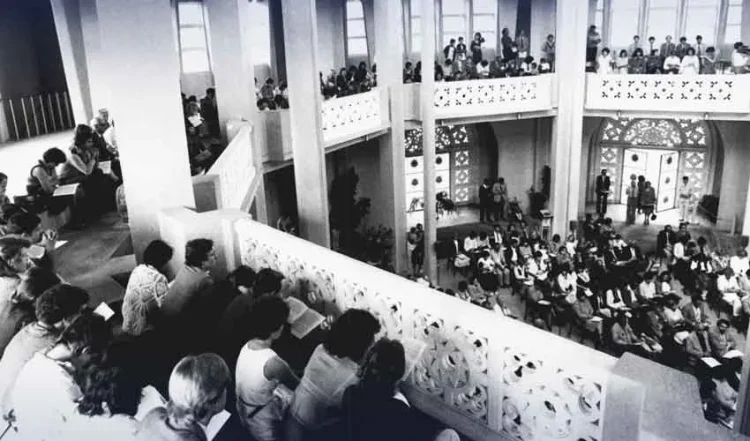The Human Rights Watch declared on Monday that the persecution of the Bahai minority in Iran since the Islamic revolution of 1979 is a crime against humanity.
The Bahais, the majority non-Muslim minority in Iran, according to the New York-based organization, are subject to persecution that includes arbitrary detention, property confiscation, denial of access to education and employment, and even denial of the right to a dignified funeral.
According to HRW: “The cumulative effect of authorities’ decades-long systematic repression amounts to the crime against humanity of persecution and is an intentional and severe deprivation of Bahais’ fundamental rights.”
The argument put forth was that persecution, as defined by the statute of the International Criminal Court (ICC), is the deliberate and severe denial of fundamental rights in violation of international law, on the basis of national, religious, or ethnic grounds.
According to HRW, although the severity of the community’s violations “has varied over time,” the persecution of Bahais has not changed and has “impacted virtually every aspect of Bahais’ private and public lives.”
The Islamic republic is said to harbour “extreme animus against adherents of the Bahai faith”, and official government policy and Iranian law both codify minority repression.
According to Michael Page, deputy Middle East director at Human Rights Watch, “Iranian authorities deprive Bahais of their fundamental rights in every aspect of their lives, not due to their actions, but simply for belonging to a faith group.”
“It is imperative that more international pressure be applied to Iran to put an end to this crime against humanity.”
The fact that a reputable international organization has now declared Iran’s treatment of the Bahais to be a crime against humanity is reportedly a first.
In contrast to other minority groups, Bahais are not granted reserved seats in parliament or recognition of their faith by the Iranian constitution.
Although the exact number of members of the community in Iran is unknown, activists surmise that it may still number in the hundreds of thousands.
The Bahai faith is a relatively new monotheistic religion that originated in Iran in the early 1800s.
According to HRW, Bahais are not allowed to freely pray, even in private, because they are a religious minority that is not recognized by the Iranian constitution.
“Periodic state-backed incitement to hatred campaigns” have been launched against them, and intelligence and legal authorities have been known to raid the homes of Bahais, seize their possessions, and either arrest or summon them for questioning.
Mahvash Sabet, a 71-year-old poet, and Fariba Kamalabadi, 61, are prominent members of the community who were both arrested in July 2022 and are currently serving 10-year jail sentences.
Over the previous 20 years, the authorities had previously imprisoned both of them.
According to HRW, Iranian authorities still “systematically prevent students who identify as Bahais from registering at universities,” and Bahais are essentially prohibited from working in the majority of public sector positions.
It went on to say that even after someone passes away, “local authorities interfere with burial processes and refuse to allow Bahais to bury their loved ones in historically Bahai cemeteries.—INP












